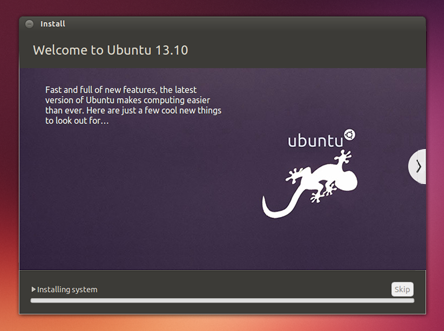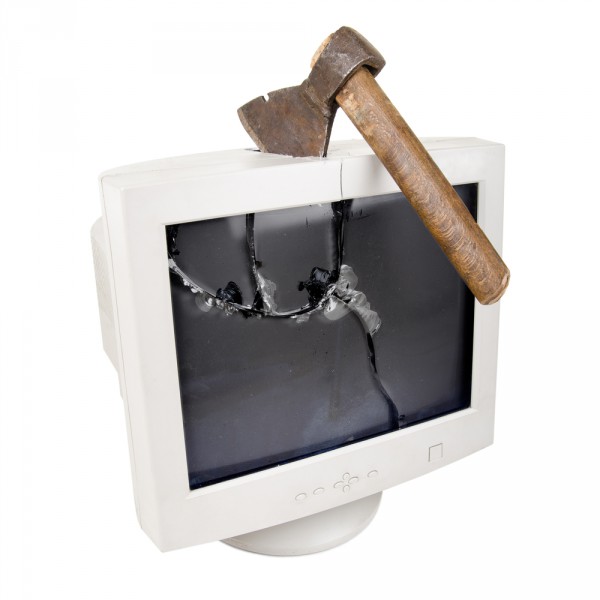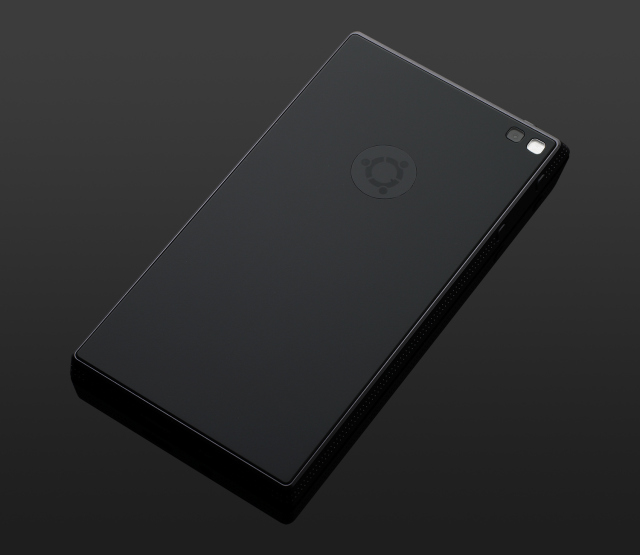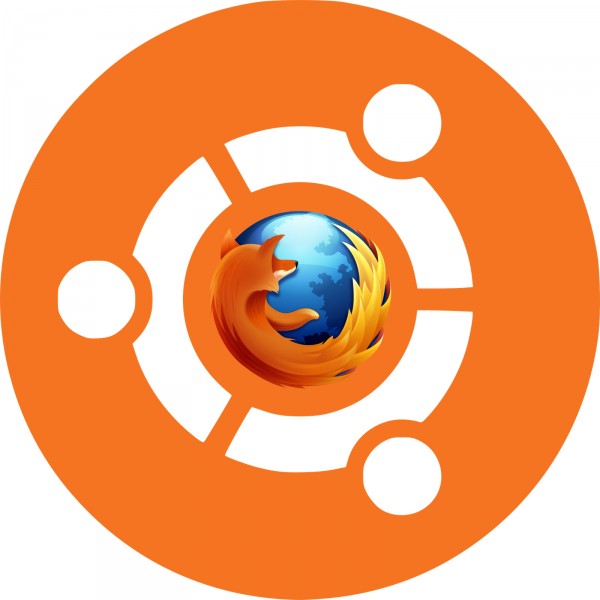
Canonical announces third edition of Ubuntu App Showdown contest
Chickens and eggs are pains in the butt. No, not the actual bird and its ovum, but the causality dilemma. The old argument asks if a chicken or egg came first. Of course, both answers are a dilemma as you need a chicken to lay an egg and you need an egg to get a chicken.
This applies to computer platforms and apps too. People may choose to buy an Android or iOS device because there are a lot of apps. Developers make the apps because a lot of people choose the platform. So, how can a new platform get apps if no one develops for it? In other words, if you don't have users, you wont get apps and if you don't have apps, you won't get users. In an effort to get developers interested in its mobile platform, Canaonical announces the third edition of Ubuntu App Showdown contest.

The Chinese love Ubuntu Linux -- over 1.3 million downloads in less than 6 months
China arguably makes the technology world go around. While the United States and other countries are a source of popular ideas, the manufacturing and production implementation of those ideas often happens in China. And so, the country is a very important economy in which to prosper and grow.
The Chinese people have taken favor to an unlikely operating system, Ubuntu Kylin, which Canonical calls "a version of Ubuntu optimized for them". In other words, Linux is gaining ground in the most populous country in the world -- the People's Republic of China.

Mark Shuttleworth concedes -- Ubuntu Linux to use systemd
Ubuntu is a wildly popular Linux distribution. Heck, it is probably the most well known distro. However, it is also based on Debian. While Canonical undoubtedly puts a lot of work into its operating system, many of the components are developed by others, including the Debian and Gnome communities -- it is a team effort.
Canonical has not exactly been a team player. If you recall, last year the company announced it was not using the Wayland display server in support of its own, called Mir. This angered many in the Linux community. With that said, Mark Shuttleworth, Canonical founder, shocks the open-source world by conceding in his fight against systemd. Yes, he announces that Ubuntu will abandon upstart as a result of systemd being selected by the Debian technical committee.

Schooled by Linux -- 1,700 students get Ubuntu laptops
Linux is everywhere; from mobile phones to web servers. Even Chromebooks run Linux. Ironically, Chrome OS is a poor platform for actually learning about the open-source kernel. This is because Google's OS is limited by design. And so, it does not behave like a typical Linux distribution.
Instead, students would be better served by using a true Linux distribution, such as Ubuntu, Fedora or Mageia. With that said, a forward thinking school in Pennsylvania has done just that. Penn Manor High School has purchased 1,700 laptops running Ubuntu.

Vodafone hooks up with Canonical for Ubuntu Linux for mobile
For someone looking to begin a Linux journey, quite often, the first leg of it involves Ubuntu. Sure, there are many other distributions, but none can match it in popularity or ease of use. While my personal preference is Fedora, I concede that Ubuntu is probably more suitable for the majority of desktop users.
Last year, despite its failed crowd funding campaign, Canonical managed to make waves by introducing the concept for an Ubuntu smartphone. Of course, no matter how great the device is on paper, if carriers don't support it, it is pretty much dead in the water. Today, the Ubuntu phone project gains an important ally in Vodafone.

From Windows XP to Linux? -- you'd have to be mad!
It has been suggested that the people who are still hanging onto Windows XP after all of these years are going to continue to do so once support officially ends in April. Microsoft is obviously keen to herd people towards Windows 8.1, but there is a good deal of resistance. Some have proposed Linux as a viable alternative; to me, this seems like a completely nonsensical "upgrade" path. Brian managed to cause quite some excitement yesterday when he wrote that Windows XP refugees should migrate towards Linux rather than considering the latest version of Windows. Without wanting to fall out with Brian, I think he's plain wrong.
One of the reasons many people cite for not wanting to upgrade to Windows 8 or 8.1 is that they don’t want to have to deal with the Start screen. They have become used to things working in a certain way and, while not perhaps entirely resistant to change, need a little encouragement into seeing the value of things. Brian suggests that one of the reasons to switch to Linux is that "you get to learn something new." If this is supposed to be an attractive element of Linux, then users may as well spend the time getting used to Windows 8.1.

Canonical tries to stop fan website using Ubuntu name and logo
Canonical, the team behind Ubuntu, finds itself the subject of criticism after contacting an Ubuntu related website and asking that the domain name be changed. Fix Ubuntu was created by Micah Lee to provide Ubuntu users with instructions about how to disable the web component of the desktop search tool. Lee was emailed by Canonical to request that he not only stop using the word "Ubuntu" in the domain name, but also refrained from using the logo.
The reason? Canonical's email suggests that the name and use of logo could cause confusion among Ubuntu users:

Canonical releases Ubuntu 13.10 Saucy Salamander for desktops and smartphones
In the world of Linux, Ubuntu serves as a gateway for many. You see, the popular Linux distribution is very easy to install and use, so it makes an ideal first distro. While some users may choose to stick with the 12.04 Long Term Support version (which is supported until 2017), other users will prefer to have the latest and greatest.
Today, Canonical releases the freshest stable version of its operating system, Ubuntu 13.10 Saucy Salamander, which has 9 months of support. While this is big news on its own, the bigger news is that it is available for both desktops and smartphones at the same time.

XMir gets axed as default display server on Ubuntu 13.10
To say Canonical's Mir has been controversial is putting it lightly. After all, it is designed to usurp X Server as the typical display server on Linux (with compatible video cards). To make the transition easier, the company developed XMir -- a way to support X server-designed applications until they can be updated. However, many members of the Linux community are backing the alternative X Server successor, Wayland.
Things got ugly in August when Intel abruptly pulled XMir support from its xorg display driver, saying only "we do not condone or support Canonical in the course of action they have chosen, and will not carry XMir patches upstream". Canonical employee Michael Hall replied by saying "I've said it before, I'll say it again. You will not make your open source project better by pulling another open source project down".

Hewlett Packard brings Ubuntu to China
China has been in the spotlight lately. Most recently, the country was rumored to be the major catalyst for the "low cost" iPhone 5c. However, this has largely been discredited since the phone was revealed to not be "low cost", but instead a relatively expensive, premium device. However, China is still a major player in the computer market and manufacturers are chomping at the bit to take advantage of it. Today, Canonical announces that Hewlett Packard is focused on the nation and will be selling Ubuntu-based laptops in its 1,500 retail stores.
Canonical says, "Ubuntu’s retail presence has grown again as HP brings a range of laptops pre-installed with a Chinese-centric version of Ubuntu 12.04 LTS to over 1,500 of its stores across all major cities in China. Consumers in China will now be able to purchase HP laptops running Ubuntu directly from stores, where they will also find information packs and marketing materials to help with their purchase".

Ubuntu Linux flavors hit major 13.10 beta-1 milestone
I love frozen yogurt; particularly Red Mango. If you aren't familiar, the company offers multiple flavors of the tasty treat which you can then customize with the toppings of your choice. Basically, the variety is what makes the experience fun. For many users, the same can be said for Linux. You see, it offers many different desktop environments -- variety and choice are the spice of unix-like life.
There are many different flavors of the Ubuntu Linux distribution, all special in their own way. Today, many of those flavors have reached the beta-1 milestone of the highly anticipated 13.10 (Saucy Salamander) release. This includes Kubuntu (KDE), Xubuntu (XFCE), Lubuntu (LXDE) and Ubuntu Gnome (Gnome3). Sadly, the standard Ubuntu version, based on Unity, is not included in the fun.

Ubuntu Edge smartphone falls far short of its $32 million funding target
When Canonical launched its crowdfunded Ubuntu Edge campaign on Indiegogo, few people expected it to succeed. Building a "smartphone and desktop PC in one state-of-the-art device" was a noble and ambitious aim, but seeking $32 million to do it meant the project had little chance of victory.
Before Ubuntu Edge, the most funding a single project had raised on Indiegogo was $1,665,380, for a Tricorder-style medical scanner. Rival Kickstarter’s record was $10,266,845 for the Pebble smartwatch. Ubuntu Edge did manage to eclipse both, which was an impressive achievement in itself.

Ubuntu Linux grants Firefox a stay of execution -- for now
Ubuntu is one of the most popular Linux distributions. According to DistroWatch, it is the number two most popular, second only to Linux Mint (which is based on Ubuntu). So when Ubuntu makes a change to its default software, the Linux community takes notice.
There has been much speculation that Firefox would be replaced by Chromium as the default web browser on the next version of the operating system. However, Firefox fans can breathe a sigh of relief as Canonical announces the browser will remain as the default in the 13.10 version of the operating system.

Canonical begs Linux users to fund Ubuntu Edge smartphone
The Linux community has been clamoring for a truly open-source Linux-based smartphone. While Android is a Linux based operating system, core Google apps are not open-source. And so, Canonical started development of a mobile operating system to meet the needs of the Linux community -- Ubuntu Touch. Ubuntu Touch (sometimes called "Ubuntu Mobile" or "Ubuntu for Phones") has been available as a preview to testers. It has successfully been installed on devices such as the Nexus 7 and Galaxy Nexus.
Unfortunately, Canonical is very limited in what devices can run its mobile OS -- most devices have locked bootloaders which prevent alternative operating systems. A locked-down phone is also in conflict with Linux-ideology. Today, Canonical officially launches a crowd-funding effort on Indiegogo to create its own phone without those roadblocks called Ubuntu Edge. There is only one problem -- it needs (in Dr. Evil’s voice) $32,000,000!

Canonical assembles a team of experts to help Ubuntu crack the mobile market
Although Ubuntu for phones looks great, it’s going to be very tricky for Canonical to get any real foothold in a mobile market utterly dominated by iOS and Android devices. Even coming close to competing with BlackBerry and Windows Phone seems like a pipe dream at this point.
To help realize its ambitions, Canonical has put together a Carrier Advisory Group (CAG) to guide and shape the Ubuntu operating system for mobile devices.
